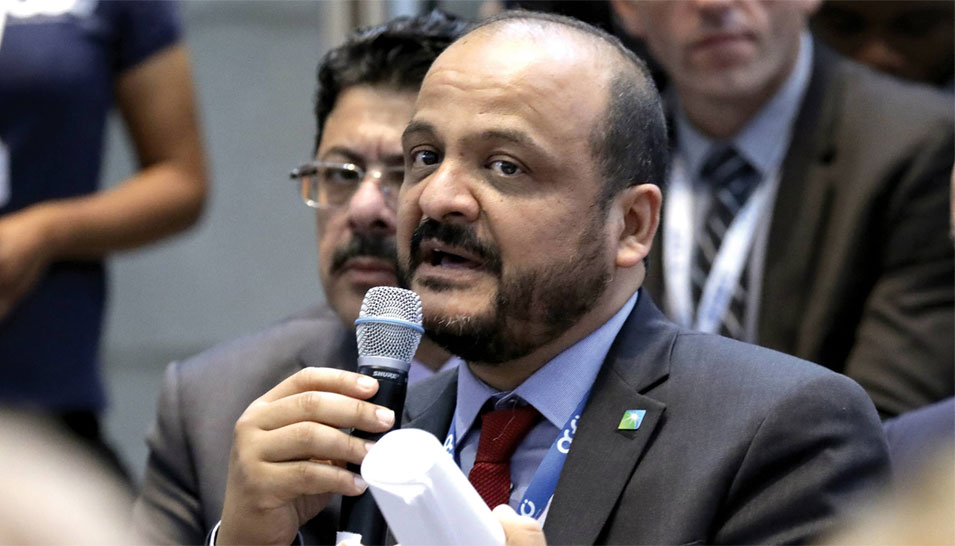
We are committed to helping to meet society’s lower carbon goals while reliably meeting the energy needs of billions of people for decades to come, said Saudi Aramco chief technology officer Ahmad O. Al-Khowaiter.
The Oil and Gas Climate Initiative (OGCI), a group of leading energy companies, recently introduced new measures to address climate challenges at its fifth annual conference in New York and said it was making progress curbing methane emissions.
Among the new efforts is one to spur large-scale investments in carbon capture, use and storage (CCUS) systems, with an early goal of doubling the amount of carbon currently stored globally before 2030. CCUS is a central part of efforts to achieve net zero emissions.
“We are committed to helping to meet society’s lower carbon goals while reliably meeting the energy needs of billions of people for decades to come and leading at the cutting edge of technology,” said Saudi Aramco chief technology officer Ahmad O. Al-Khowaiter, who participated in working sessions at the event. “Our involvement with the OGCI demonstrates this commitment.”
Reducing methane intensity, greenhouse gas, and more
OGCI also said its members are committed to reducing the amount of methane and carbon emissions in their upstream oil and gas operations, and supporting appropriate governmental policies that assign a value to carbon as a way to lower emissions. Members have already reduced their collective methane intensity by 9% and are on track to meet a cumulative 20% reduction by 2025, the group said. OGCI is now working on a target to reduce its collective average carbon intensity as well.
Reducing carbon intensity involves actions such as improving energy efficiency, minimizing flaring, upgrading facilities, and co-generation. Saudi Aramco, a founding member of OGCI, has been a leader in lowering carbon intensity from oil and gas operations, from the wellhead to the refinery gate. The carbon intensity of our Upstream operations is the lowest in the industry at 10 kilograms of carbon dioxide equivalent per barrel of oil equivalent, according to a Stanford University-led study published in the journal Science.
Also, based on third-party verification of our greenhouse gas emissions, our methane intensity last year was just .06%, which is also one of the lowest in the industry.
OGCI members have set up a venture capital fund with more than $1 billion that has invested in startup companies that are developing, scaling, and deploying technologies that reduce greenhouse gas emissions. It has made seven new investments in the past year in companies with impactful technologies that span the energy value chain. Fifteen companies are in the portfolio.
OGCI is also starting a Kickstarter crowdfunding program to facilitate putting CCUS technologies into operation in industrial hubs in the U.S., U.K., Norway, the Netherlands, and China.
More broadly, OGCI is working with 11 countries supporting the Clean Energy Ministerial CCUS initiative to create a global commercial carbon storage industry at the scale needed to meet the goal of the Paris Agreement. OGCI has also joined the Natural Climate Solutions Vision Initiative convened by the World Economic Forum and the World Business Council for Sustainable Development.